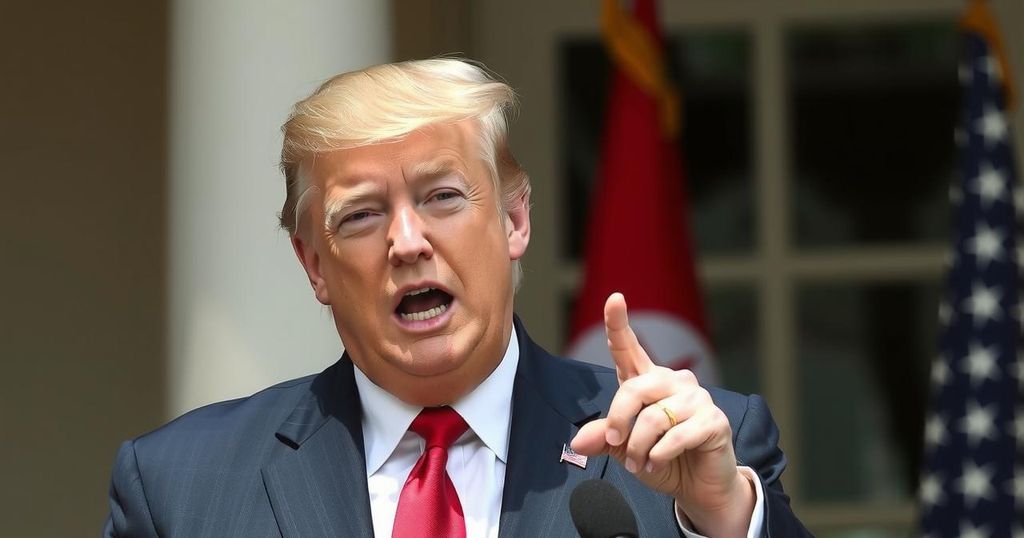Trump’s Possible Non-Interventionist Stance on Syria
President-elect Trump faces a challenging situation in Syria as he prepares to assume office. His remarks indicate a potential hands-off approach, criticizing U.S. military involvement in the region. Key advisors support this sentiment, suggesting a non-interventionist policy may be adopted. The future of U.S. engagement in Syria remains to be seen as Trump navigates competing views among his advisors and foreign leaders.
As President-elect Donald J. Trump prepares to take office, he is confronted with a complex and precarious situation in Syria, a nation beset by civil war since 2011. How he will navigate the challenges posed by a Syria now largely in control of rebel factions remains uncertain. Trump’s previous comments indicate a possible policy of non-involvement, reflecting his disdain for prolonged U.S. military engagements in the region. Recently, he expressed his view on social media, describing Syria as a ‘mess’ and asserting that America should refrain from involvement. This sentiment is echoed among key advisors such as Vice President-elect JD Vance and potential nominee for director of national intelligence, Tulsi Gabbard, both of whom advocate for a hands-off approach. Given these insights, Trump’s foreign policy outlook towards Syria hints at a reluctance to engage in what he perceives as futile conflicts.
The situation in Syria has taken a dire turn as the nation has been embroiled in civil war since 2011, characterized by its complex interplay of local and international interests. The conflict has seen the rise of various rebel groups, some with ties to terrorist organizations, which complicates the landscape for any foreign intervention. President-elect Trump’s election campaign featured a strong criticism of past U.S. interventions in the Middle East, labeling them as ‘endless wars’ that have not benefited American interests. His administration’s direction regarding Syria is highly anticipated as it could shape both regional stability and U.S. foreign relations moving forward.
In conclusion, Donald J. Trump’s upcoming presidency poses a pivotal moment for U.S. foreign policy regarding Syria. His inclination towards non-intervention, rooted in a broader critique of American military engagements, suggests that his administration may not seek to further entangle the United States in Syria’s ongoing crises. With key advisors sharing similar sentiments, any forthcoming policies may reflect a significant shift in American involvement in the Middle East.
Original Source: www.nytimes.com




Post Comment